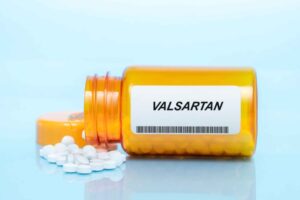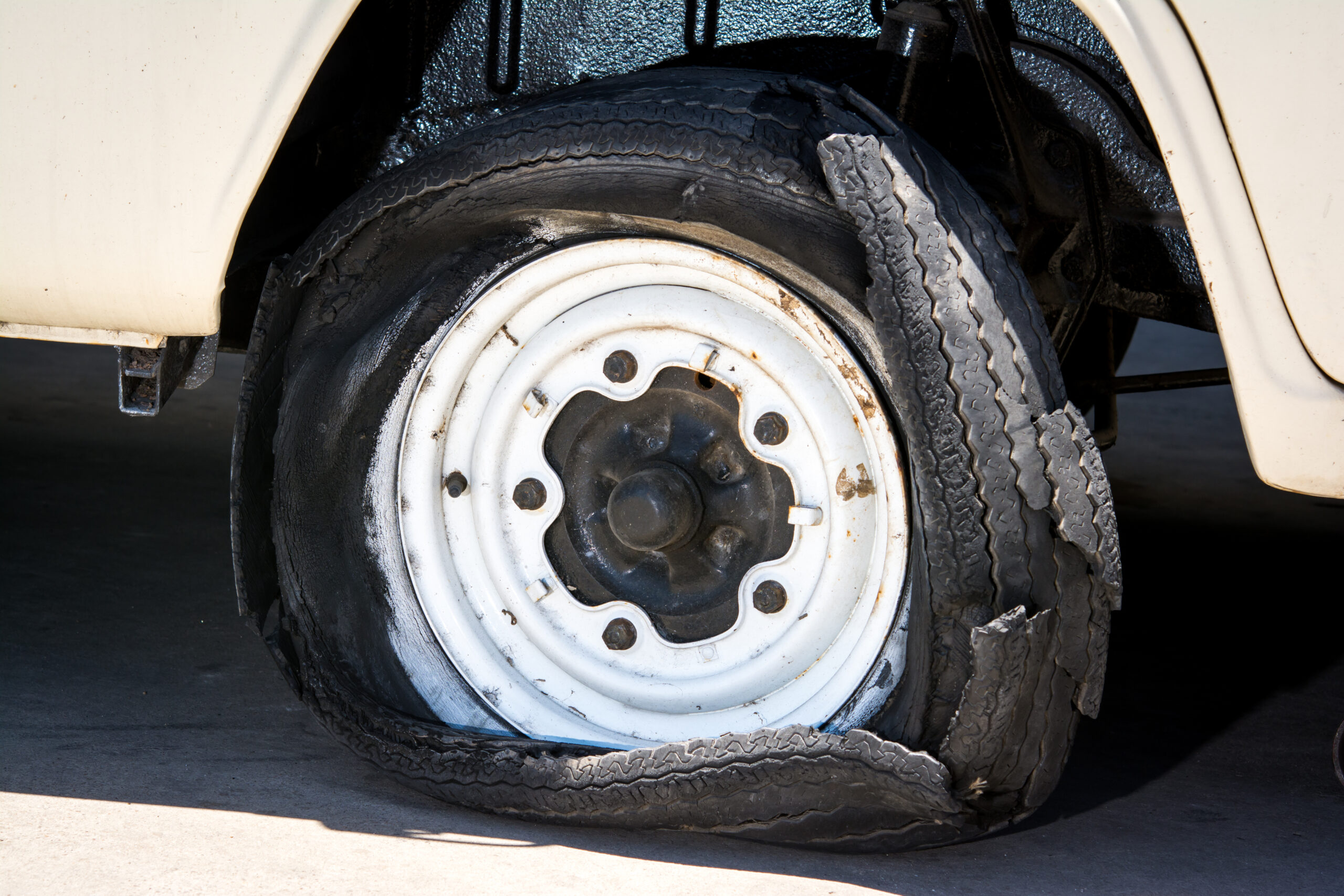Recalled drugs are medications that have been withdrawn from the market due to safety concerns, defects, or contamination. If you believe a recalled drug harmed you, you can file a defective drug claim by retaining an experienced product liability attorney to gather evidence and consult medical professionals.
A lawyer can handle every step of the legal process for you, assess the strength of your claim, gather necessary documentation, and negotiate on your behalf for compensation. They will also protect your rights and reach the best possible outcome for your case.
Categories of Dangerous Drugs
 Defective drugs can pose significant health risks, leading to recalls by manufacturers and regulatory agencies.
Defective drugs can pose significant health risks, leading to recalls by manufacturers and regulatory agencies.
Several well-known brands have faced recalls due to issues ranging from contamination to incorrect dosages:
- Valsartan (various brands) – Valsartan is a widely prescribed medication used to treat high blood pressure and heart failure. Several manufacturers, including Teva Pharmaceuticals and Novartis, recalled their versions of this drug after it was discovered to be contaminated with potential carcinogens called nitrosamines. This recall affected millions of patients who relied on valsartan.
- Zantac (ranitidine) – Several manufacturers, including Sanofi, recalled Zantac, a popular over-the-counter medication used to treat heartburn. The recall occurred after concerns arose about NDMA, a probable human carcinogen, in the drug. This issue led to widespread scrutiny of ranitidine products, prompting many consumers to sue the manufacturers while seeking alternatives to manage acid reflux.
- Tylenol (acetaminophen) – While Tylenol is commonly used as a pain reliever and fever reducer, there have been recalls involving specific formulations. For instance, certain liquid versions of Tylenol were recalled due to potential contamination with foreign substances.
- EpiPen (epinephrine auto-injector) – The EpiPen, used for severe allergic reactions, has faced recalls due to potential defects that may prevent the device from delivering the correct dosage. Mylan, the manufacturer, issued recalls for specific lots after reports surfaced about the devices failing to activate.
- Metformin (various brands) – Metformin, a medication for managing type 2 diabetes, has been recalled by several manufacturers due to contamination with NDMA, similar to the issue with valsartan. Brands like Teva and Amgen faced scrutiny as the FDA mandated recalls to ensure patient safety. This prompted diabetic patients to seek alternative medications while the manufacturer addressed the issue.
- Fentanyl patches (various brands) – Fentanyl patches, used for chronic pain management, have also seen recalls due to mislabeling and potential risks of overdose. Brands like Actiq have issued recalls to correct these issues.
Types of Harm that Can Result from Dangerous Drugs
Taking a drug that turns out to be defective or dangerous can lead to various types of harm, significantly affecting physical health, mental well-being, and even social relationships.
For example, Valsartan – a medication used to treat high blood pressure – was recalled due to contamination with a probable carcinogen. Patients taking contaminated Valsartan could face an increased risk of cancer over time, creating anxiety and fear about long-term health effects. Similarly, Zantac can cause cancer due to the presence of a harmful compound.
Tylenol, while commonly used for pain relief, can cause liver damage if taken in excessive amounts or when contaminated. This can result in acute liver failure, requiring hospitalization and possibly a transplant. The fear of such severe consequences can lead to mental health issues, such as anxiety and depression – especially if you are left questioning your health.
The EpiPen, used for severe allergic reactions, has faced scrutiny for malfunctioning or delivering inadequate doses. If a patient experiences anaphylaxis and the EpiPen fails, the consequences can be life-threatening. This experience can lead to trauma and anxiety, making you fearful of future allergic reactions or reluctant to engage in activities where exposure may occur.
Metformin, a medication for type 2 diabetes, has been associated with rare but serious complications like lactic acidosis. This condition can be life-threatening and may cause significant stress for patients, causing constant worry about the medication’s safety and effectiveness.
Fentanyl patches, which are used for severe pain management, can be dangerous due to the risk of overdose. If a patch malfunctions or releases too much medication, it can lead to respiratory failure and death.
Survivors of such experiences may suffer from post-traumatic stress disorder (PTSD) or chronic anxiety related to pain management.
Proving a Defective Drug Claim
 Proving the legal elements of a defective drug claim involves demonstrating that the drug is unsafe due to design flaws, manufacturing defects, or inadequate warnings about its risks.
Proving the legal elements of a defective drug claim involves demonstrating that the drug is unsafe due to design flaws, manufacturing defects, or inadequate warnings about its risks.
To establish a strong case, you need a lawyer to prove:
- Existence of a Defect – The first element is to show that the drug is defective. A design defect occurs when a manufacturer produces an inherently defective product. For instance, if a medication has dangerous side effects that the manufacturer could have foreseen during its development, a court may deem it defective by design. On the other hand, a manufacturing defect involves flaws that occur during the drug’s production. If a contaminated or improperly formulated batch of medication leads to harmful effects, this can qualify as a manufacturing defect. A warning defect relates to inadequate instructions or warnings about the drug’s risks. A defective drug may lack sufficient information regarding its potential side effects or interactions.
- Causation: Once a defect is established, the next step is to prove causation. This means demonstrating that the defect directly caused harm to the patient. Evidence may include medical records, expert testimony, or scientific studies showing a link between the drug’s defect and the patient’s injuries. The patient must show that, but for the defect, the injury would not have occurred.
- Injury or Damage – You must also demonstrate that you suffered actual injury or damage directly due to the defective drug. This can include physical harm, such as serious health issues or long-term side effects, as well as economic damages, such as medical bills or lost earnings due to an inability to work. Documenting these damages is important, as it supports the claim for compensation.
- Foreseeability – In some cases, the patient must show that the manufacturer should have foreseen the problem. If the drug manufacturer knew or should have known about the risks associated with their product but failed to take appropriate actions, this can strengthen the case. Evidence may include internal company communications, reports of adverse events, or warnings from regulatory agencies.
- Compliance with Regulations – While approval by regulatory agencies like the FDA does not automatically protect the manufacturer from liability, demonstrating a lack of compliance with regulations can constitute negligence. However, if a drug is later recalled or found to harm patients, a lawyer can question their compliance.
Each of these elements plays an important role in building a compelling legal case for those harmed by defective drugs.
How to File a Defective Drug Claim
Filing a defective drug claim involves several important steps, beginning with a thorough investigation and potentially ending in litigation.
Here’s an overview of the process.
- Investigation – The first step in filing a defective drug claim is conducting a comprehensive investigation. This includes gathering all relevant information about the drug, such as medical records, prescription details, and any adverse reactions experienced.
- Retain Experienced Legal Representation – Retain an attorney who regularly handles defective drug cases to handle the legal challenges involved. An experienced lawyer can gather the necessary evidence, file the appropriate paperwork, and represent the claimant in negotiations or court proceedings.
- Consult with Medical Experts – After gathering initial information, an attorney can consult with medical experts. A medical professional can provide insights into the drug’s effects and how it may have contributed to the injury.
- Determine the Basis for the Claim – Defective drug claims can be based on several factors, such as design defects, manufacturing defects, or inadequate warnings. You need a lawyer to identify the specific nature of the defect that harmed you. This will help shape the direction of the legal claim.
- File a Complaint – If the investigation and consultation suggest a strong case, the next step is to file a formal complaint. This document outlines the details of the claim, including the nature of the defect, the harm suffered, and the compensation sought. You need to file this claim in the appropriate court, and serve the defendant (usually the drug manufacturer) with the legal documents.
- Discovery Phase – After you file the complaint, both parties enter the discovery phase. This process involves exchanging information, gathering evidence, and taking depositions. Both sides will investigate the facts of the case more thoroughly, including reviewing medical records, expert testimony, and any internal documents from the manufacturer.
- Negotiation and Settlement – Before proceeding to trial, there may be opportunities for negotiation. Many cases settle out of court, allowing both parties to reach an agreement without the uncertainties of a trial. Settlement discussions can involve compensation for medical expenses, lost income, and pain and suffering.
- Litigation – If you cannot settle, the case proceeds to litigation. This involves presenting the case in court, where both sides will argue their positions. A judge or jury will then determine the outcome, deciding whether to hold the defendant liable and what damages they should pay.
Recovering Financial Compensation in a Defective Drug Claim or Lawsuit
 In a defective drug claim or lawsuit, you may seek compensation to address your losses.
In a defective drug claim or lawsuit, you may seek compensation to address your losses.
The damages generally consist of two main types: economic damages and non-economic damages.
Economic Damages
These damages are quantifiable financial losses that you incurred due to the defective drug. Common types of economic damages include:
- Medical Expenses – This includes costs related to hospital stays, surgeries, rehabilitation, and ongoing medical treatments necessary to address injuries caused by the drug. Receipts and medical records are vital for proving these expenses.
- Lost income – If you cannot work due to your injuries, you can claim lost earnings. This compensation accounts for the income you would have earned if the drug had not harmed you. Documentation from employers, pay stubs, and tax returns can support these claims.
- Future Earnings – In cases where injuries lead to long-term disabilities, you may seek compensation for future lost earnings. This involves estimating the potential income you would have earned over your lifetime had you not been affected by the drug.
- Out-of-Pocket Expenses: Any additional costs incurred due to the injury, such as transportation to medical appointments or special accommodations at home, can also be claimed as economic damages.
Non-Economic Damages
These damages compensate for intangible losses. They include:
- Pain and Suffering – This refers to the physical pain and emotional distress resulting from the injury or medical complication. You may experience chronic pain, anxiety, depression, or reduced quality of life due to your condition.
- Emotional Distress: You may suffer from psychological effects as a result of complications. This can include anxiety, depression, or post-traumatic stress disorder (PTSD) linked to the trauma of the experience.
- Loss of Enjoyment of Life – If the medical complications impede your ability to participate in activities you once enjoyed, you may claim compensation for this loss. This can include hobbies, sports, or time spent with family and friends.
- Loss of Consortium – In cases where injuries affect a relationship with a spouse, the non-injured partner may seek compensation for loss of companionship, affection, and support.
In some cases, if the drug manufacturer acted with gross negligence or malice, a court may award you punitive damages to punish the defendant and deter others from similar conduct, serving as additional compensation beyond actual damages.
A knowledgeable defective drug lawyer can determine the compensation you may recover in your claim or lawsuit.
Call an Experienced Defective Drug Lawyer Right Away
If you or someone you love recently suffered harm because of a defective or dangerous drug, a skilled product liability attorney can explain your legal options. They can then file a claim on your behalf and pursue the compensation you deserve for your losses.

